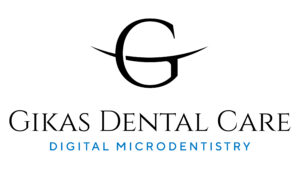Porcelain veneers
Porcelain veneers (veneers as referred to in the English literature) are an indirect technique of cosmetic dentistry , in which the cooperating dental laboratory is inserted and which is usually completed in two or at most three appointments in the dental office.
These are very thin porcelain structures that are bonded to the outer surface of the teeth, which improves their shape, colour and small inclinations. They are a wonderful conservative solution since the tooth is grinded little or not at all.
Instructions after laying porcelain veneers
What you need to know
They are made of porcelain which is a ceramic material much more durable than composite resin. The colour of porcelain veneers does not change either over the years or due to eating habits and in general porcelain veneers have a higher resistance to breakage compared to resin veneers.
Porcelain veneers are the solution of choice in several cases such as: in archaodontics, to "close" the spaces between the teeth, in teeth with many fillings that have either discolored or need replacement, in discolored teeth, in cases where it is necessary to change the shape of the existing tooth (e.g. In cases where it is necessary to change the shape of the existing tooth (e.g. fracture of the incisal third, nanodentistry), in cases where a perfectly aesthetic and natural result is the main requirement of the patient, in cases where the patient wants a permanent and unchanging dazzling white smile! Unfortunately, porcelain veneers are contraindicated in patients with roaring teeth, with periodontal problems - gingivitis or periodontitis -, with contractions such as pen bites and finally when the teeth are particularly damaged.
How long they will last is a question that may or may not be answered! It depends on the attention we give them. For example, we have to be very careful about hitting them. If the patient is an athlete, they should wear a special sports splint during their training which will protect the facets from breaking. In general, porcelain is a durable material, but because the veneers are usually quite thin in thickness, we should be careful of dents. In short, if you follow the maintenance instructions you will have them for many years!
No procedure in our clinic is painful, since the necessary anesthesia is always used so that you do not feel the slightest pain. Moreover, the procedure is not particularly painful because the removal of dental substance is very conservative.
Usually when we talk about porcelain veneers and smile we refer to the anterior teeth of the upper jaw, because these teeth are primarily visible when we speak or smile. We usually intervene on the six anterior teeth but this always depends on many factors (e.g. extent of the smile).


